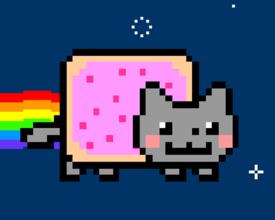Eat more calories and lose weight- What is really happening

FoodandFitness
Posts: 502 Member
Hey, y'all. I just wanted to make this post to shed some light from my experience as a private practice RD specializing in weight loss on a concept I see posted so often in these forums:
"Starvation Mode"
How is it that people who can't lose weight on say... 1500 calories, drop to 1200 calories and still don't lose weight? Or even yet, someone who is eating 1000 calories increases their intake up to 1400 and they start losing weight. How does this happen?
First, let's talk about some inconsistencies in the whole calorie counting process:
1. Values for foods in MFP- caloric variance in foods with the same name
2. Portion size estimations from user of MFP- there can even be variance when using measuring cups. Food scales are the most accurate.
3. Variance in reported caloric value from restaurants
4. Variance in the BMR TDEE and calories burned from exercise- these are all equations and estimations anyways
So right there, you have a lot of variance. We can safely assume that foods entered in MFP may have some inaccuracies.
Now let's look at the average MFP user
1. Probably not weighing out all foods. Estimates intake quite a bit.
2. May dine out at a restaurant or casserole dishes that are hard to estimate
3. May skip days or meals and have gaps in data from logging
4. May not be aware of extra calories in food, or simply forget to add certain ingredients
5. May not be accurately recording exercise (Choosing wrong intensity or including warm up and cool down time in workout)
Consider some special populations and individuals who are eating VERY low calorie diets, and are losing weight
- prisoners of war
- people with GI or absorption issues (crohn's disease, etc)
- bariatric surgery patients
- medically supervised protein sparing modified fasts
... all these individuals are on severely restricted calories and still lose weight
The ONLY way to sustain a fat loss is to sustain a caloric deficit: big or small
So here's my 2 cents on what really happens in "starvation mode"
Scenario A: Individual cuts calories and doesn't lose any weight
Possible reasons:
1. general inconsistencies in tracking (examples above) means the original or new calorie values were inaccurate to begin with.
2. this individual becomes less physically active after cutting calories
3. individual binges more severely or often from feeling overly restricted
4. individual is unaware of "sneaking" foods or bigger portion sizes
Scenario B: Individual eats more and loses weight
1. Greater accuracy is achieved as person consumes more, he or she pays more attention to accurate portion sizes
2. Individual begins exercising more
3. Eats more simple, single ingredient foods, which are usually easier to track and measure
The take home point is that to achieve a weight loss, you have to sustain a deficit. There's no other way to do it. So to the 200 pound person only eating 1,000 calories and not losing weight, I would say, your 1,000 calories is probably a misestimation OR you are indeed eating 1,000 calories until you binge and eat back your deficit. (Or you need to get your thyroid checked, but this post is in regards to individuals with normally functioning thyroids).
Bring on the flame posts and naysayers! My body is ready!
"Starvation Mode"
How is it that people who can't lose weight on say... 1500 calories, drop to 1200 calories and still don't lose weight? Or even yet, someone who is eating 1000 calories increases their intake up to 1400 and they start losing weight. How does this happen?
First, let's talk about some inconsistencies in the whole calorie counting process:
1. Values for foods in MFP- caloric variance in foods with the same name
2. Portion size estimations from user of MFP- there can even be variance when using measuring cups. Food scales are the most accurate.
3. Variance in reported caloric value from restaurants
4. Variance in the BMR TDEE and calories burned from exercise- these are all equations and estimations anyways
So right there, you have a lot of variance. We can safely assume that foods entered in MFP may have some inaccuracies.
Now let's look at the average MFP user
1. Probably not weighing out all foods. Estimates intake quite a bit.
2. May dine out at a restaurant or casserole dishes that are hard to estimate
3. May skip days or meals and have gaps in data from logging
4. May not be aware of extra calories in food, or simply forget to add certain ingredients
5. May not be accurately recording exercise (Choosing wrong intensity or including warm up and cool down time in workout)
Consider some special populations and individuals who are eating VERY low calorie diets, and are losing weight
- prisoners of war
- people with GI or absorption issues (crohn's disease, etc)
- bariatric surgery patients
- medically supervised protein sparing modified fasts
... all these individuals are on severely restricted calories and still lose weight
The ONLY way to sustain a fat loss is to sustain a caloric deficit: big or small
So here's my 2 cents on what really happens in "starvation mode"
Scenario A: Individual cuts calories and doesn't lose any weight
Possible reasons:
1. general inconsistencies in tracking (examples above) means the original or new calorie values were inaccurate to begin with.
2. this individual becomes less physically active after cutting calories
3. individual binges more severely or often from feeling overly restricted
4. individual is unaware of "sneaking" foods or bigger portion sizes
Scenario B: Individual eats more and loses weight
1. Greater accuracy is achieved as person consumes more, he or she pays more attention to accurate portion sizes
2. Individual begins exercising more
3. Eats more simple, single ingredient foods, which are usually easier to track and measure
The take home point is that to achieve a weight loss, you have to sustain a deficit. There's no other way to do it. So to the 200 pound person only eating 1,000 calories and not losing weight, I would say, your 1,000 calories is probably a misestimation OR you are indeed eating 1,000 calories until you binge and eat back your deficit. (Or you need to get your thyroid checked, but this post is in regards to individuals with normally functioning thyroids).
Bring on the flame posts and naysayers! My body is ready!
0
Replies
-
Logic is cool!0
-
A 200lb person would still lose weight eating 1800 calories/day... I highly doubt that they are missing 800 calories due to nutritional inconsistency on MFP. Try again.0
-
Thanks for re-posting information already on the forums.1
-
Bump, I am so tired right now I can barely keep my eyes open. I do want to finish reading in the morning.0
-
For those who have been in a defecit for a long time and the weight loss stalls, quite possibly the metabolism has slowed so a refeed is the way to go...happened to me ive been in a defecit for 14 weeks now and stalled at 178 lbs...did a refeed 4 days later found out the weight went down to 176!0
-
so how big of a deficit is "too big"? Everyone throws out 'starvation mode' and 'eat more' but there's no line in the sand ever drawn.
I mean if wu take TDEE -20% as the limit, then for most people you're advocating like a 500-750 cal/day deficit. That seems conservative to me.
I dunno, I've been on an average 1000cal/day deficit for 22 weeks and the weight loss has been consistent, back calculates to the weight I expected to lose based on assumptions used to calculate TDEE.
I'm sure the diminishing returns are going to appear and eventually there will be a stall ..... well either that or I get all the way to my goal weight first.
The thing I have a problem with is the hundreds of threads that get opened by people with 60 or more pounds to lose claiming they've stalled within anywhere from 2-8 weeks of starting their diet and the drones all posting "eat moar".
2 lb/week seems an acceptable target on bb.com and most books but on MFP it gets a lot of hate.
I guess the question is where is the line --- 500, 750, 1000 cal/day deficit or even higher - 1250, 1500, 2000?0 -
For those who have been in a defecit for a long time and the weight loss stalls, quite possibly the metabolism has slowed so a refeed is the way to go...happened to me ive been in a defecit for 14 weeks now and stalled at 178 lbs...did a refeed 4 days later found out the weight went down to 176!
What is a reefed???0 -
For those who have been in a defecit for a long time and the weight loss stalls, quite possibly the metabolism has slowed so a refeed is the way to go...happened to me ive been in a defecit for 14 weeks now and stalled at 178 lbs...did a refeed 4 days later found out the weight went down to 176!
[/quote
This0 -
.0
-
Scenario A: Individual cuts calories and doesn't lose any weight
Possible reasons:
1. general inconsistencies in tracking (examples above) means the original or new calorie values were inaccurate to begin with.
2. this individual becomes less physically active after cutting calories
3. individual binges more severely or often from feeling overly restricted
4. individual is unaware of "sneaking" foods or bigger portion sizes
Scenario B: Individual eats more and loses weight
1. Greater accuracy is achieved as person consumes more, he or she pays more attention to accurate portion sizes
2. Individual begins exercising more
3. Eats more simple, single ingredient foods, which are usually easier to track and measure
Addendum to the bolded, NEAT plays a huge role. Apart from professional athletes, it contributes far more to the daily caloric expenditure than conscious exercise.
Calories go too low, NEAT is downregulated. Bring calories up and you upregulate NEAT.The take home point is that to achieve a weight loss, you have to sustain a deficit. There's no other way to do it. So to the 200 pound person only eating 1,000 calories and not losing weight, I would say, your 1,000 calories is probably a misestimation OR you are indeed eating 1,000 calories until you binge and eat back your deficit. (Or you need to get your thyroid checked, but this post is in regards to individuals with normally functioning thyroids).
Truth0 -
Thanks for re-posting information already on the forums.
It's not like there aren't people coming to this site asking for help and guidance daily or anything. Some people aren't as good as you at sorting things out.0 -
Thanks Tony. The eat more crowd here was started by some people who wanted to promote their website by informing those that ate at 1200 cals, that they could eat more and still lose, but it obviously got out of hand. I agree, if your not losing weight, you simply are eating too much. I like the point you bring in about binge eating because you could eat 600 cals on Monday but eat it all back on Friday!0
-
If the person doesn't know what a refeed is then they probably don't need it and they'll probably just use cheat meals instead of carb cycling.For those who have been in a defecit for a long time and the weight loss stalls, quite possibly the metabolism has slowed so a refeed is the way to go...happened to me ive been in a defecit for 14 weeks now and stalled at 178 lbs...did a refeed 4 days later found out the weight went down to 176!
What is a reefed???
If you read my first post, you will see that there is a minimal effect on metabolism. Now to answer what a refeed is. Is when you eat at maintenance calories for a week or 2.0 -
Well, his last line of arrogance makes me think he believes he a sentient guru about all things nutrition like he knows things that haven't been previously discussed.Thanks for re-posting information already on the forums.
It's not like there aren't people coming to this site asking for help and guidance daily or anything. Some people aren't as good as you at sorting things out.0 -
Are you saying that starvation does not lead to decreased metabolism in humans, or that the decrease is not sufficient to cause a stall in weight loss? With the understanding that we're taking about months of starvation, not a couple of days, and actual starvation levels, which are generally at < 800 Cals per day but are somewhat dependent on the individual. Because, if it is the former, there are plenty of studies out there to dispute that. If it's the latter, that could be argued if the rate slowed to match the amount of Cals consumed.0
-
Well, his last line of arrogance makes me think he believes he a sentient guru about all things nutrition like he knows things that haven't been previously discussed.Thanks for re-posting information already on the forums.
It's not like there aren't people coming to this site asking for help and guidance daily or anything. Some people aren't as good as you at sorting things out.
He is licensed by the state of texas as a RD so he gets some leeway.0 -
Are you saying that starvation does not lead to decreased metabolism in humans, or that the decrease is not sufficient to cause a stall in weight loss? With the understanding that we're taking about months of starvation, not a couple of days, and actual starvation levels, which are generally at < 800 Cals per day but are somewhat dependent on the individual. Because, if it is the former, there are plenty of studies out there to dispute that. If it's the latter, that could be argued if the rate slowed to match the amount of Cals consumed.
I'm saying that starvation does not lead to a physiological decrease that cannot be overcome by keeping activity levels up and staying on top of nutrition.
I also consider that many people have VERY sedentary jobs and home lives, so the calories of daily activity not from exercise wouldn't fluctuate as much in those individuals.0 -
Bump.....can't wait to read a little later. Thanks.0
-
I also consider that many people have VERY sedentary jobs and home lives, so the calories of daily activity not from exercise wouldn't fluctuate as much in those individuals.
This. I have a fitbit, on average without exercise I probably walk 3000-4000 steps. The weekend is terrible, and will often be under 1000 unless I go out. On average fitbit tells me I burn around 1800 calories with exercise (200-300 calories).
Everyone keeps saying to eat more, so I have recently, no surprise I haven't lost.0 -
Refeeds work well but most people don't need to refeed, just weigh their *kitten*!!!0
-
Now let's look at the average MFP user
1. Probably not weighing out all foods. Estimates intake quite a bit.
2. May dine out at a restaurant or casserole dishes that are hard to estimate
3. May skip days or meals and have gaps in data from logging
4. May not be aware of extra calories in food, or simply forget to add certain ingredients
5. May not be accurately recording exercise (Choosing wrong intensity or including warm up and cool down time in workout)
This makes so much sense to me. When I subscribe to a food delivery company who provide the whole days food to your set number of calories I loose weight every time. When I try to do it myself, however accurate I think I am being, I either don't loose or I gain.
The problem is that having all your meals delivered is expensive and unsustainable, so I guess being more honest in tracking is the answer0 -
Thanks Tony. The eat more crowd here was started by some people who wanted to promote their website by informing those that ate at 1200 cals, that they could eat more and still lose, but it obviously got out of hand. I agree, if your not losing weight, you simply are eating too much. I like the point you bring in about binge eating because you could eat 600 cals on Monday but eat it all back on Friday!
oh you are wrong
you are very very very wrong
i don't normally binge, and when it does happen, it's always within my calorie allowance. i ate 1200 or less consistently for 6 months while exercising religiously 5 times a week, doing strength and cardio, plus walking A LOT. there was DEFINITELY a huge deficit going.
even if i had been miscalculating my portions (which is unlikely because i always pick the highest calorie counts on items here and i don't accurately weigh food but i've got an estimate because i buy my food by weight. so even if i don't know how much a potato is, i know that i got 500 grams of potatos and have potatoes, so they can't be more than 100-150 each) i would still have been creating a deficit. i was eating the minimum a person should + exercising intensely more than 2 hours a day.
i still didn't lose A POUND, or an inch. absolutely nothing changed, except i went a little bit insane.
i got checked to see if there was something wrong with my metabolism. guess what? there wasn't.
i wasn't losing because i wasn't eating enough. if you don't eat enough your body will hold on to the fat. the examples OP gave of people eating low cal are extreme cases and not ideals or role models.
if you eat too much, you gain weight. if you eat too little, you mantain. you need to find a balance and create a proper healthy, mantainable deficit. that's it.0 -
I agree with you so so much. I've been thinking this for a while and I'm glad someone finally said it!!0
-
Do you have a link to that? Very interesting and this is SO ME!!!!!!0
-
Increasing calories in (eating more) can result in increasing calories out (generally moving more - NEPA, less efficiency of movement and higher energy cost of processing food - TEF)
This, along with more stringent focus on calories, less unconscious and not logged eating due to decreased feeling of deprivation therefore can result in a greater deficit than if calories in were lower.
TDEE is not static.
Find your calorie sweet spot: low enough that it creates fat loss but not so low it causes fat loss to slow unnecessarily.0 -
Incidentally, this is one of the best reviews of what is really going on with metabolic slowdown from dieting (in reality falling activity levels are the biggest danger it seems...)
http://weightology.net/weightologyweekly/?page_id=4150 -
someone asked about "refeed" did I miss a response? I am thinking that it means upping your calories for some days??? thanks0
-
Well, his last line of arrogance makes me think he believes he a sentient guru about all things nutrition like he knows things that haven't been previously discussed.Thanks for re-posting information already on the forums.
It's not like there aren't people coming to this site asking for help and guidance daily or anything. Some people aren't as good as you at sorting things out.
So glad the OP is not my trainer - if all the arrogant crap he posted is what he sells to paying clients it's almost criminal.....0 -
Please explain refeed0
-
I just wonder amid all the science and you would know an awful lot more than me.If you eat clean home prepared food cooked from scratch nothing from packets and tins ect,and just ate enough to satisfy hunger would you really need all the science?I think eat well and move more sounds very simplistic I know but it does work!
 0
0
This discussion has been closed.
Categories
- All Categories
- 1.4M Health, Wellness and Goals
- 398.1K Introduce Yourself
- 44.7K Getting Started
- 261K Health and Weight Loss
- 176.4K Food and Nutrition
- 47.7K Recipes
- 233K Fitness and Exercise
- 462 Sleep, Mindfulness and Overall Wellness
- 6.5K Goal: Maintaining Weight
- 8.7K Goal: Gaining Weight and Body Building
- 153.5K Motivation and Support
- 8.4K Challenges
- 1.4K Debate Club
- 96.5K Chit-Chat
- 2.6K Fun and Games
- 4.8K MyFitnessPal Information
- 18 News and Announcements
- 21 MyFitnessPal Academy
- 1.5K Feature Suggestions and Ideas
- 3.2K MyFitnessPal Tech Support Questions


















